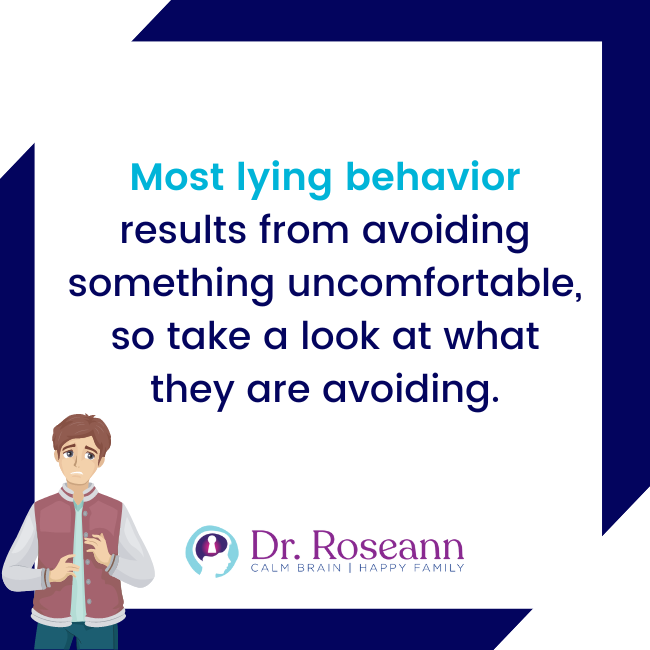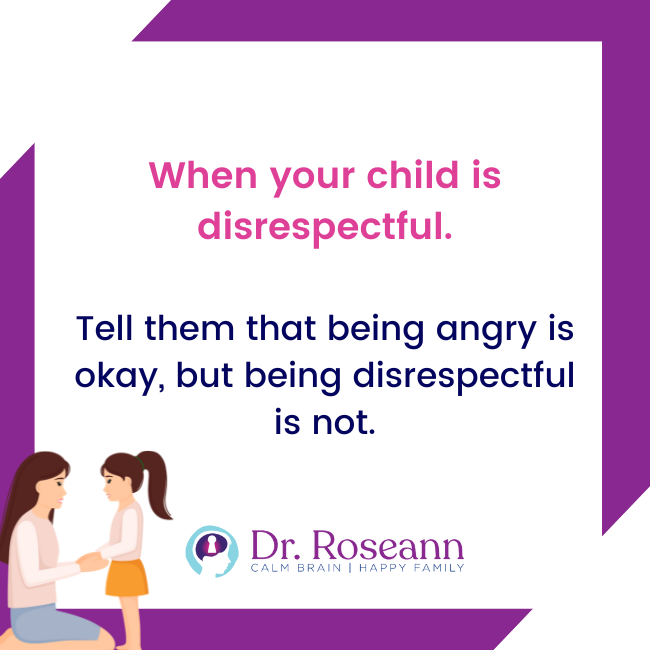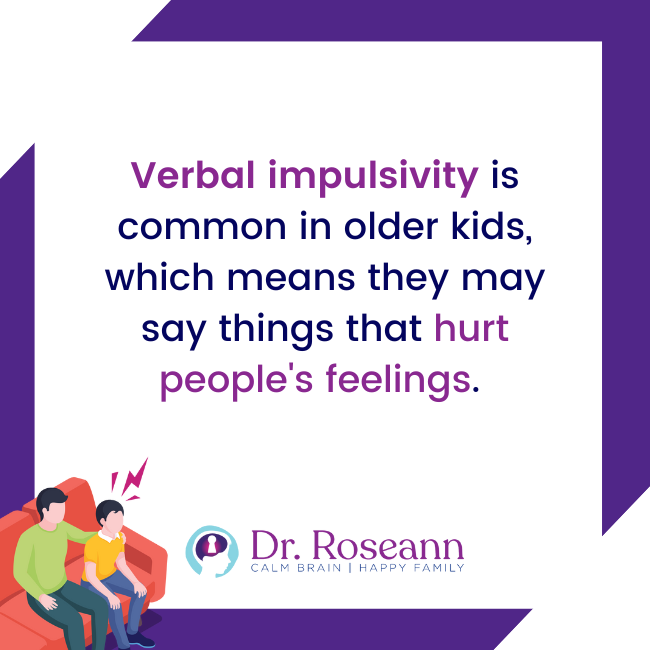Each child has a unique personality and behavior. However, when children's behaviors become problematic, parents start exploring solutions. If a child's behavior is age-appropriate and does not harm others, it is generally considered normal. All children experience behaviors associated with typical developmental periods. But if their problem behaviors get out of control, you should pay attention to them.
If your child is overly emotional, destructive, or irritable, it may indicate a behavioral problem. Temper tantrums, impulsiveness, and oppositional defiant disorder are common among younger children (Ogundele, 2018). Here's a closer take on the most common behavior issues in children and some of the best ways to correct them:
#1 Lying
It's common for kids to lie to get attention, get out of trouble, or get a better response from others. Understanding why your child lies can help you decide what to do next. When you discuss untruthful behavior with your child, ask them what else they could have done. Most lying behavior results from avoiding something uncomfortable, so take a look at what they are avoiding.
Lying has natural consequences, but it is a behavior you shouldn't ignore. Instead, emphasize the importance of honesty and role model the behavior you want from your child. . On the other hand, praise your child when they are truthful, especially even if they will get into trouble for telling the truth. Doing so will reinforce positive behaviors.

#2 Temper Tantrums
When we think of temper tantrums, we typically think of toddlers and preschoolers, but older children can experience them too. Meltdowns might extend to their grade school years if overlooked. Parents sometimes believe that tantrums and other behavioral issues are intentional or manipulated, but that is usually not the case.
Temper tantrums often occur because a child is unable to self-regulate. They are a child's learned behaviors or, more simply, how they have learned to cope with upset. As a child struggles to control her emotions, she might not be aware that she resorts to tantrums because she doesn't know a more effective way to solve problems or communicate.
Well-meaning parents tend to fix this conduct by comforting the child or giving her whatever she wants. As a result, kids become more likely to continue having tantrums and are less likely to develop ways to manage their feelings.
When it comes to tantrums, ignoring can be a very effective strategy. Do not allow your children to stomp, shout, or throw themselves to the ground to get what they want. Instead, when your child screams for attention, teach them how to communicate their needs better and more effectively. And, of course, help them develop healthy coping skills to manage uncomfortable sensations or handle disappointment.
#3 Lack of motivation
Motivation can be a problem when kids seem ‘lazy” and find excuses for not doing anything. There are many reasons a child's motivation may be low, and it is important to explore the resistance behind it. Do they not like the task? Are they missing a skill? Is there a clinical issue? Rather than forcing them to do something they don't like, try to use their strengths in their weaker areas.
Letting them choose some hobbies based on their interests is a great place to start. The more autonomy kids have in choosing something, the more likely they are to take an interest in it.
Additionally, make daily chores as fun as possible for your children. You also can assign light household chores to children nine years and older.
#4 Disrespect
It can be frustrating when your child shouts or talks back whenever you ask her to do something. The consequences of backtalk can be a severe problem if it is not dealt with appropriately. On the other hand, unwanted behaviors such as mocking, name-calling, and throwing things are common signs of disrespect. These disrespectful behaviors will likely worsen over time if not addressed appropriately.
While it isn't uncommon for a parent and a teen to have a blowout, constant battles could signify a clinical issue such as a mood disorder, anxiety, or conduct disorder.
Speak firmly but calmly to your child if they resort to name-calling, and tell them they can't use such language. It is best to walk away and not get in a back-and-forth with your angry child. It is essential to be positive when your child follows your instructions, even after expressing that they don't want to.

Tell them that being angry is okay, but being disrespectful is not. However, if your child seems threatening, pay close attention to what he says and handle it cautiously. In such a case, don't react impulsively. If your child is upset, calm them before addressing the matter. Discuss with them calmly what is acceptable and unacceptable behavior.
The key is to set limits and let your child know of the consequences, but never threaten them. For example, say that he will not be able to play outdoors if he talks back. In contrast, you can reward him for appropriate good behavior, like if he stops shouting and starts to listen. This way, your child will feel less controlled while still having options.
#5 Whining
It's a bad habit when your child whines to obtain what they want. It is essential to end whining before it grows into a bigger problem. The best thing you can do is ignore it. Be sure to show your child that whining won't make you change your mind. Once they stop whining, you can start giving them positive attention. Be sure to teach your child appropriate ways to handle uncomfortable emotions like disappointment.
The act of ignoring is an active process for a parent. Ignoring is the reverse of paying attention. Ignoring your child does not mean neglecting or standing by in front of your child while he misbehaves. Instead, you turn your attention away from your kid's behavior. You don't look at your child or speak to him. Pay no attention to any protests or excuses. Instead, use positive reinforcement to decrease the challenging behaviors you want your child to stop (CDC, 2019).
#6 Aggression
When children don't get what they want, anger is a common problem. As typical as anger is, it can manifest as aggressive behavior. Children can become aggressive if they have trauma, mood disorders, sensory issues, or other clinical issues.
Many children become aggressive because they lack the social skills to manage their feelings appropriately. But, then again, some children have a low frustration tolerance and meltdown whenever something goes wrong.
Young children, such as toddlers and preschoolers, are prone to aggressive behavior because they lack the communication skills to ask for what they need. But with their growth and by learning new skills, your child's aggression should decrease over time.
When your child acts aggressively, focus on showing them what they should be doing instead. Think of it as a learning opportunity, so they don't repeat the behavior. It is important to help your child connect with the other person's feelings to build empathy. Seek professional help if aggression doesn't improve, or you feel ill-equipped to manage the behavior.
The environment at home or school can influence a child's aggressive behavior. When kids behave aggressively, parents often yell back in response. It will teach your child the wrong values and behaviors. Your children will never learn how to control their emotions and impulses. You want to share your calm by lowering your tone and showing them how to calm down are the more effective ways to address their negative response.
It is okay to empathize with them and reflect on their feelings after they are upset. . Instead, teach them about alternatives to physical violence and how to cope with frustration. The biggest challenge for parents is to set a good example and share their calm.
#7 Impulsiveness

Physical impulsivity is also among young children's most common behavioral problems. In older children, verbal impulsivity is more likely, which means they may say things that hurt people's feelings. You can teach your kid impulse control skills in various ways. For example, you can reduce impulsive behavior by praising your child when they think before they act or speak.
However, their impulsive behavior may be rooted in an underlying mental health condition, such as attention deficit hyperactivity disorder or ADHD. Impulsivity is one of the most common symptoms of ADHD. Getting your child diagnosed by a qualified practitioner would lead you to the correct behavior management plan for this condition. In addition, they can offer parent training programs that can be very helpful.
#8 Bullying
There isn't any doubt that bullying is a serious issue that can result in the victim being abused physically and emotionally. Some children become a bully to feel powerful and to resolve their social problems and emotional issues. Children often resort to bullying when dealing with their emotions becomes too challenging.

Bullying is wrong, and your kids need to learn this during the early stages. Educating students about bullies is crucial and showing them examples of their behaviors is vital. Parents should address their own child's behavior when they try to coerce siblings or other children. Focus on communication skills and managing frustration.
Citations
CDC. (2019). How to Use Ignoring. Centers for Disease Control and Prevention. https://www.cdc.gov/parents/essentials/consequences/ignoring.html
Ogundele, M. O. (2018). Behavioral and emotional disorders in childhood: A brief overview for pediatricians. World Journal of Clinical Pediatrics, 7(1), 9–26. https://doi.org/10.5409/wjcp.v7.i1.9
Always remember… “Calm Brain, Happy Family™”
Are you looking for SOLUTIONS for your struggling child or teen?
Dr. Roseann and her team are all about solutions, so you are in the right place!
There are 3 ways to work with Dr. Roseann:
You can get her books for parents and professionals, including: It’s Gonna Be OK™: Proven Ways to Improve Your Child’s Mental Health, Teletherapy Toolkit™ and Brain Under Attack: A Resource For Parents and Caregivers of Children With PANS, PANDAS, and Autoimmune Encephalopathy.
If you are a business or organization that needs proactive guidance to support employee mental health or an organization looking for a brand representative, check out Dr. Roseann’s media page and professional speaking page to see how we can work together.
Dr. Roseann is a Children’s Mental Health Expert and Therapist who has been featured in/on hundreds of media outlets including, CBS, NBC, FOX News, PIX11 NYC, The New York Times, The Washington Post,, Business Insider, USA Today, CNET, Marth Stewart, and PARENTS. FORBES called her, “A thought leader in children’s mental health.”

She is the founder and director of The Global Institute of Children’s Mental Health and Dr. Roseann Capanna-Hodge. Dr. Roseann is a Board Certified Neurofeedback (BCN) Practitioner, a Board Member of the Northeast Region Biofeedback Society (NRBS), Certified Integrative Medicine Mental Health Provider (CMHIMP) and an Amen Clinic Certified Brain Health Coach. She is also a member of The International Lyme Disease and Associated Disease Society (ILADS), The American Psychological Association (APA), Anxiety and Depression Association of America (ADAA) National Association of School Psychologists (NASP), International OCD Foundation (IOCDF) International Society for Neurofeedback and Research (ISNR) and The Association of Applied Psychophysiology and Biofeedback (AAPB).
© Roseann-Capanna-Hodge, LLC 2023
Disclaimer: This article is not intended to give health advice and it is recommended to consult with a physician before beginning any new wellness regime. *The effectiveness of diagnosis and treatment vary by patient and condition. Dr. Roseann Capanna-Hodge, LLC does not guarantee certain results.













